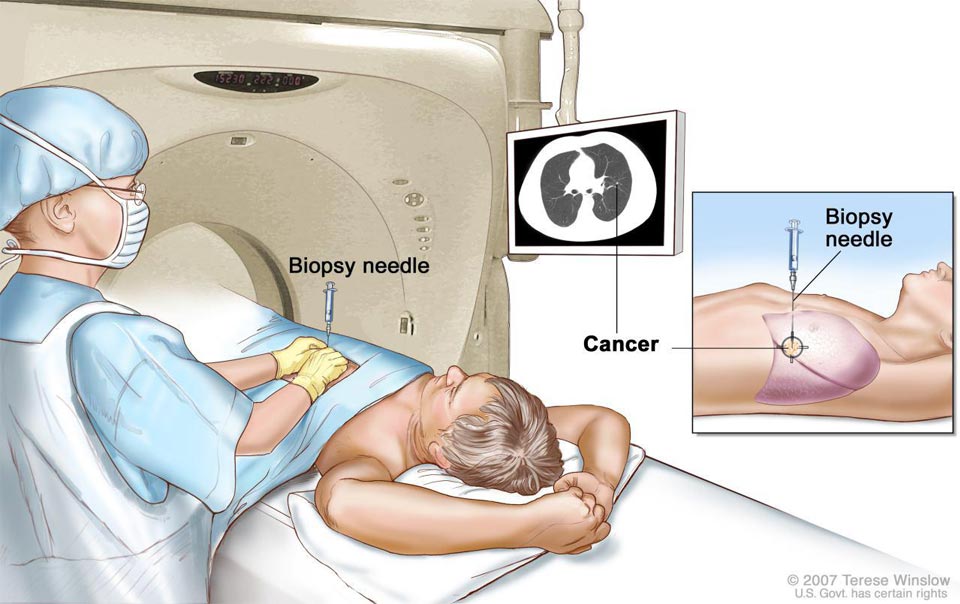What is Interventional Radiology?
Interventional radiology (IR) is a medical specialty that uses imaging technology such as X-rays, CT scans, and ultrasound to guide minimally invasive procedures for diagnosis and treatment. IR procedures are typically less invasive than traditional surgeries, offering quicker recovery times, reduced pain, and fewer complications.
Uses of Interventional Radiology
Interventional radiology can be used for both diagnostic and therapeutic purposes. Common applications include:
- Biopsy: Removing a small tissue sample for examination in cases of suspected cancer or other diseases.
- Angiography: Imaging the blood vessels to detect blockages, aneurysms, or other vascular conditions.
- Embolization: Treating conditions like fibroids, tumors, or abnormal blood vessels by blocking blood flow.
- Drainage Procedures: Removing fluid collections such as abscesses or bile from the body.
- Stent Placement: Inserting a small mesh tube to keep blocked or narrowed blood vessels open.
Symptoms Requiring Interventional Radiology
- Persistent pain or swelling in certain body parts (e.g., abdomen, legs)
- Unexplained bleeding
- Difficulty in diagnosing certain conditions with traditional methods
- Signs of vascular blockages (e.g., swelling, cold limbs)
- Suspicion of internal bleeding or fluid buildup
Procedure
- Pre-Procedure Preparation:
- Fasting may be required for a few hours.
- Your doctor will review medical history, and imaging tests will be done to map out the procedure.
- Performing the Procedure:
- Under local anesthesia, a small incision is made in the skin, and a catheter (thin tube) is inserted.
- Imaging is used to guide the catheter to the target area (e.g., biopsy site or blood vessel).
- For biopsy, tissue samples are collected. For angiography, contrast dye is injected into the blood vessels for clear imaging.
- Post-Procedure Care:
- Recovery is quick, with most patients returning home the same day or after a short observation.
- Follow-up appointments are scheduled to monitor healing and ensure the procedure's success.
Advanced Techniques in Interventional Radiology
- CT-guided Biopsy: Provides precise targeting for tissue samples, especially in hard-to-reach areas.
- Angioplasty & Stenting: Opening up blocked arteries with a balloon and placing a stent to maintain blood flow.
- Radiofrequency Ablation (RFA): Using heat to destroy abnormal tissue such as tumors.
- Cryoablation: Using extreme cold to treat tumors or abnormal growths.
Why Choose India for Interventional Radiology?
India has become a global hub for medical tourism, offering state-of-the-art interventional radiology services at a fraction of the cost compared to Western countries. Many hospitals in India are equipped with the latest imaging technology and staffed by highly trained specialists, making it a great destination for both diagnostic and therapeutic IR procedures.
- Expert Radiologists: Leading interventional radiologists with experience in performing complex procedures.
- Advanced Technology: Access to the latest imaging equipment such as CT, MRI, and ultrasound for accurate diagnosis and treatment.
- Cost-Effective Solutions: High-quality services at affordable prices compared to other countries.
- Shorter Wait Times: Immediate access to treatment without long waiting periods.
- Comprehensive Care: Hospitals provide holistic care, from diagnosis to post-procedure recovery.
Why Choose Healtour Solutions for Interventional Radiology?
Healtour Solutions offers tailored packages to connect you with the best interventional radiology specialists and medical facilities in India. Whether you need a biopsy, angiography, or any other procedure, we ensure that you receive the highest quality of care with convenience and affordability.
- Comprehensive Support: We guide you from consultation to post-procedure care.
- World-Class Hospitals: Access to top hospitals with expert radiologists and advanced equipment.
- Personalized Treatment Plans: We create a customized treatment journey suited to your individual needs.
- Affordable Pricing: Get the best interventional radiology services without breaking the bank.
Cost of Interventional Radiology in India
The cost of interventional radiology procedures in India varies depending on the complexity of the procedure and the hospital’s location. On average:
- Biopsy: INR 20,000 to INR 50,000 (USD 250 to USD 600)
- Angiography: INR 40,000 to INR 1,50,000 (USD 500 to USD 1,800)
India offers cost-effective treatments without compromising quality, making it a preferred choice for patients worldwide.
Benefits of Interventional Radiology
- Minimally Invasive: Smaller incisions lead to faster recovery times and fewer complications.
- Reduced Pain: Less invasive techniques typically result in less pain post-procedure.
- Faster Recovery: Most procedures require minimal downtime, allowing patients to return to daily activities quickly.
- Cost-Effective: Compared to traditional surgery, IR procedures are more affordable.
- High Precision: Imaging technologies guide procedures for increased accuracy and better outcomes.
Post-Procedure Care
- Immediate Recovery: Most patients can go home the same day with minimal monitoring.
- Follow-Up Visits: Your doctor will schedule regular follow-up appointments to ensure proper healing.
- Pain Management: Pain is typically minimal but may be managed with over-the-counter medications if needed.
- Lifestyle Modifications: Patients may be advised to modify their activities for a few days after the procedure to support healing.
Frequently Asked Questions (FAQs)
- What is interventional radiology?
Interventional radiology uses imaging techniques to guide minimally invasive procedures for diagnosis and treatment.
- Is the biopsy procedure painful?
Biopsies are typically done with local anesthesia, making the procedure relatively painless, though some discomfort may occur afterward.
- How long does it take to recover from angiography?
Recovery from angiography is quick, and most patients return to normal activities within 24-48 hours.
- Are there risks involved in interventional radiology procedures?
Like any medical procedure, there are risks, such as bleeding or infection, but these are rare and typically manageable.
- What are the benefits of interventional radiology over traditional surgery?
IR offers minimal incisions, reduced pain, shorter recovery time, and lower risk of complications compared to traditional surgery.
- How long will I need to stay in the hospital after a procedure?
Most interventional radiology procedures are outpatient, meaning you can go home the same day.
- Will I need to follow any special aftercare instructions?
Your doctor will provide specific instructions based on your procedure, including activity restrictions and follow-up care.
- Are interventional radiology procedures covered by insurance?
Many health insurance plans cover interventional radiology procedures, but it’s important to check with your provider.
- Can interventional radiology help with cancer treatment?
Yes, procedures like biopsy and embolization are often used in cancer diagnosis and treatment.
- How can I schedule a consultation for interventional radiology?
You can contact Healtour Solutions to schedule a consultation and connect with top specialists in India.



